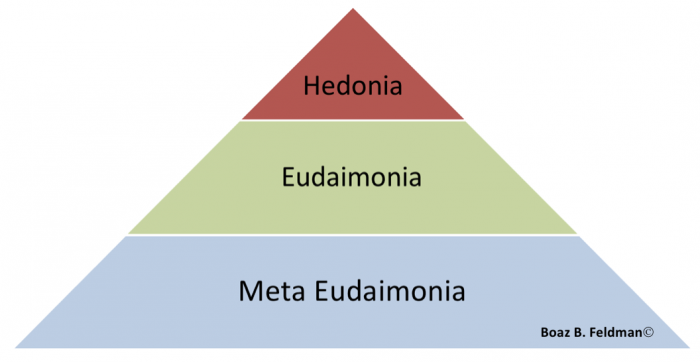Happy at Work Forum Special
16 mai 2018
Yesterday was a special day. My dear colleague Annika Mansson celebrated 10 years of founding her Happy & Work organisation. However, this is not just about her celebration, this is about celebrating the importance and worthiness of deepening happiness.
In the US Declaration of independence, which happens to be one of the most influential documents for the founding of Western democracy and participative politics, there is one code of particular relevance. It says that every citizen has the right to « life, liberty and the pursuit of happiness. » Isn’t it interesting that the pursuit of happiness is given as much weight as the right to life and liberty? What importance does this have for business?
The management science literature is now populating with a growing number of articles on the topic of happiness and well-being. It started with organisational psychologists such as Frederick Herzberg and his hygiene and motivating factors. Today we are working towards a tripartite model of progressively more profound forms of happiness (see figure 1).

Firgure 1. Tripartite model of individual & organisational happiness
This model has a few Greek terms. First there is hedonic pleasure, which literally means « delight ». Think about a nice meal at the cafeteria, the deliciously tasting coffee next to the company elevators, the pleasure of working on an efficient computer. These are the small pleasures of life that an organisation can help with and make each day feel easier to get through. Second, there is eudaimonic pleasure, which we can brake down into « eu » meaning « good », and « daimon », which means « in spirit ». Imagine yourself immersed in doing something you enjoy, perhaps developing a project that fits your interests or engaging in a meaningful job. Mihály Csíkszentmihályi, one of the founding fathers of positive psychology, came up with the notion of « flow » which is when you are completely aligned with a sense of purpose and meaning in what you are doing, not seeing time pass or challenges as problematic. This is eudaimonia at its best.
Third, we have that same quality of depth and meaning, with the added layer of expanding it and sharing with others. The power of the collective is such that one’s satisfaction is multiplied and grows exponentially since it reverberates not just within yourself, but among your peers and natural environment as well. This form of happiness necessarily implies a sense of virtue and moral compass from Paolo Gallo (one of the keynote speakers of the forum). Since there is a growing alignment and coherence between yourself, your peers, society and natural environment at large, your actions naturally start to reflect needs and desires from a collective intelligence. Your own needs do not compromise that of the collective, but it rather becomes a mutually reinforcing and complementary process. Paolo told a story of Ngozi Okonjo-Iweala who was the most inspiring boss he ever had. She was Managing Director for the World Bank and was then offered a position as Finance Minister for Nigeria. She was battling against corruption in Nigeria and getting momentum when suddenly she received threats of death. She stood tall and kept battling. The criminals then threatened her family, to which she did not respond. A few days later, they kidnapped her mother, saying that if she did not leave the country within 48 hours, they would kill her. Ngozi replied by saying « you can kill her. I will find you. » and stayed in Nigeria to do her job. She was able to stay put and keep her focus because she was so well grounded on that 3rd level of happiness. Her work felt important and made a difference to her peers, her communities and the country at large. The sens of drive, passion and commitment allowed for even the most disturbing of difficulties to arise and not overwhelm her. A few weeks later her mother was found alive. What can we learn from this story? Is it possible for us to reach this depth of happiness, this profound connection to a sense of meaning?
One can consider this pyramid in the same way as one think of the food pyramid. Everyday, we need a set of ingredients in order to stay healthy: liquids, carbohydrates, proteins, vegetables, fruits and fats. How about we start considering our needs for happiness, our pursuit for happiness in the same way? Would it be possible to have a daily agenda to satisfy all three layers? Today is also a special day, if we make it so.